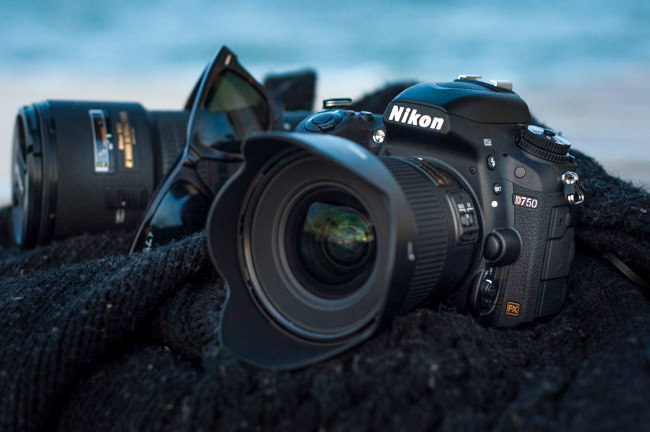
In a world where more images are being taken every two minutes today than in the entire 20th century, it’s safe to say that the perceived value of an individual image is relatively low – that’s just basic economics in a way, but of course that doesn’t paint the whole story, and that neatly brings us to the topic of copyright infringement.
Copyright infringement is absolutely rife, and that’s problematic not just for the individual but for our field on a whole, as the devaluation of images affects us all as creators. Perhaps the best way to begin to combat this is through educating ourselves on what infringement is, what it isn’t, and how to protect against it, and the team at ImageRights is well suited to address all of these points.

ImageRights is the only company to have fully automated copyright registration with the US Copyright Office and has made copyright enforcement a truly integrated component of its clients’ daily workflow. They are addressing the new challenges to intellectual property that the internet is creating, head on, and is a system we have recommended in the past.
*See foot of article to learn more about ImageRights
They’ve kindly put together a written Q&A for us and you which addresses the most common questions and curiosities surrounding this issue. If you’re totally new to the world of copyright this is a brilliant place to start as a primer, and if you’re not entirely green to it, it may offer some clarity via specificity. Either way, this is likely a good post to bookmark for reference, and one to share with other creatives, as the more awareness about this the better – rising tide floats all boats, kind of thing…
Without further a do:
What Is Online Copyright Infringement?
- Placing a copyrighted photograph on your website without the authority of the copyright owner is generally an infringement of the copyright owner’s exclusive rights of reproduction, public display and/or distribution.
- A copyright holder generally has a legal right to damages for the infringement of a work. This is the case regardless of how long the infringement lasted, whether the infringer acted innocently or in bad faith, whether the infringer made any money from exploitation of the work, or whether the infringement is on-going.
What Photographs Are Copyrighted?
- A photograph is generally protected by federal copyright law upon creation and can be infringed even if the person who used it without permission did not know it was copyrighted.
- Many right owners include the symbol © to emphasize that that work is protected by copyright and that all rights are reserved. However, copyright owners are not required to provide notice.
- Remember that a photograph is not available for free or unauthorized public use simply because it does not have a copyright notice or because it is not easy to track down the copyright owner.
Is It Infringement if I Didn’t Know I Had to License the Photo?
- Yes, innocent infringement of a photograph is still copyright infringement.
- Copyright infringement is strict liability, which means that your state of mind in committing an infringement is completely irrelevant under the law for the purposes of determining whether or not you must pay damages.
- Infringement occurs whether an individual acts with bad faith or complete innocence. Anyone found to have infringed a copyrighted work, even if accidental, may be liable for statutory damages up to $30,000 for each work infringed. If a willful infringement is proven the amount may be increased up to $150,000 for each work infringed.
Did I Infringe if Someone Else Built My Website?
- Yes, it is still infringement even if the photograph is initially selected by your web developer.
- By placing the photograph on a website, a website owner directly infringes a copyright holder’s exclusive rights of public display, reproduction, and/or distribution. And, since copyright infringement is a strict liability violation, whether you or your website developer knew the photograph was copyrighted is legally irrelevant to establishing liability.
What Is Public Domain? Are Images Found on Google or Social Media Platforms in the Public Domain?
- The public domain refers to works outside of copyright protection that are available to the public.
- A work enters the public domain only under a limited number of circumstances, including because the copyright has expired, because the copyright owner voluntarily abandoned it, or because it is a federal government work.
- Know that a work is not in the public domain and remains protected regardless of whether it is published on paper or digitally or available on the Internet.
What is a Photo License?
- The Picture Licensing Universal System (PLUS) is a non-profit initiative created to help users and creators clarify and standardize the image licensing process. PLUS defines licensing as “A legal agreement granting permission to exercise a specified right or rights to a work, often encompassed in an invoice, or the act of granting same.”
- To be safe and avoid the risk of infringement liability, you should always obtain a license prior to using an image.
What is Fair Use?
- Fair use is an affirmative defense to copyright infringement that allows the use of copyrighted works without authorization of or payment to copyright owners under certain limited circumstances, particularly in situations of commentary and criticism. (https://fairuse.stanford.edu/overview/fair-use/)
- Fair use is a notoriously grey area of the Copyright Act and one that creates a lot of confusion in the marketplace. Given that seasoned copyright attorneys may differ on whether or not any given use is fair use, you are taking a risk in assuming that your use may be considered fair use.
[RELATED: ImageRights Opens Dedicated Copyright Registration Service | Built-In Blockchain Security & Open To Non-Subscribers]
Who are and what is ImageRights?
ImageRights International provides intelligent image search and copyright enforcement services to photo agencies and professional photographers worldwide to ensure that their intellectual property rights are protected and that they are compensated for the unauthorized use of their photos and other visual content. Through its in-house license compliance team and global network of legal partners and copyright experts, ImageRights effectively and efficiently negotiates and collects fees, directly or through court proceedings as necessary, without its clients bearing any of the upfront costs or financial risks associated with pursuing such claims. ImageRights, the only company to have fully automated copyright registration with the US Copyright Office, has made copyright enforcement a truly integrated component of its clients’ daily workflow.
ImageRights also has a great Lightroom Plug-in which you can learn about here.






Get Connected!